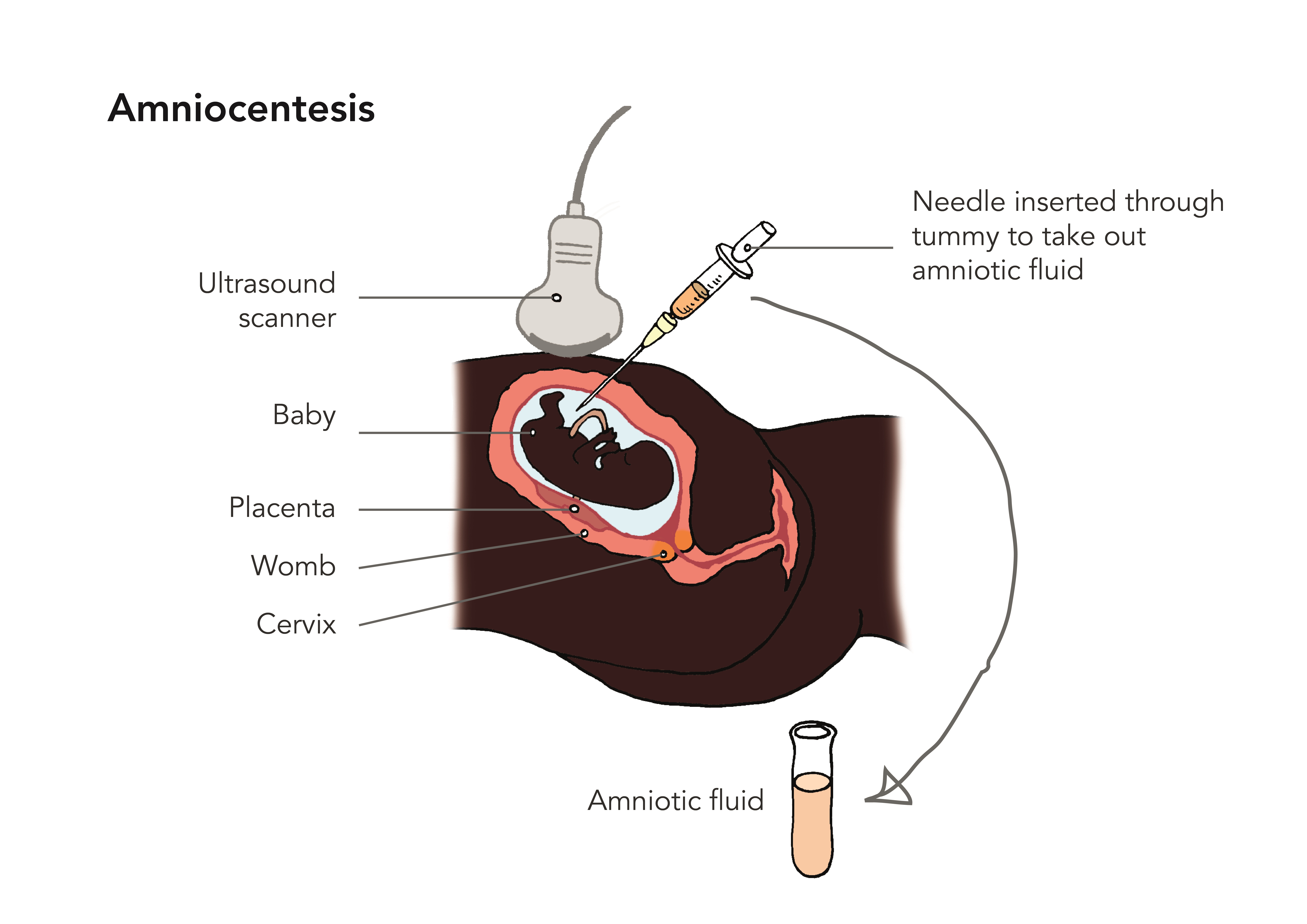
An amniocentesis is a diagnostic test that can detect if your baby has a serious genetic or infective condition; in cases where screening tests have highlighted that there may a higher chance for a condition occurring in your unborn baby.
During an amniocentesis the fetal medicine doctor passes a fine needle through your tummy into your womb, and a small sample of the amniotic fluid that exists around the baby is taken out. This fluid contains some of the baby’s shed skin cells and these are analysed in the laboratory to provide answers, as they are a true reflection of the baby’s DNA.
This procedure is always performed under sterile conditions and under ultrasound guidance. The procedure itself usually takes around 5 minutes and latest data quote a 1:200 miscarriage risk. This means that 199 out of 200 times that an amniocentesis is performed, a lady will have no complications from the procedure, but in 1 out of 200 times that an amniocentesis is performed, a lady would unfortunately experience a miscarriage.
An amniocentesis can be performed from 15+0 weeks, and ideally from 16+0 weeks of gestation.
The fetal medicine team will clearly explain how the results will be given to you. The results are released by the laboratory in stages with initial results available in 3-5 working days, and more detailed results available in 10-14 working days. Occasionally very detailed tests are performed and these may take 21 working days.
More information about amniocentesis is available here:
Amniocentesis – NHS (www.nhs.uk)
Screening in pregnancy: CVS and amniocentesis information for parents – GOV.UK (www.gov.uk)
